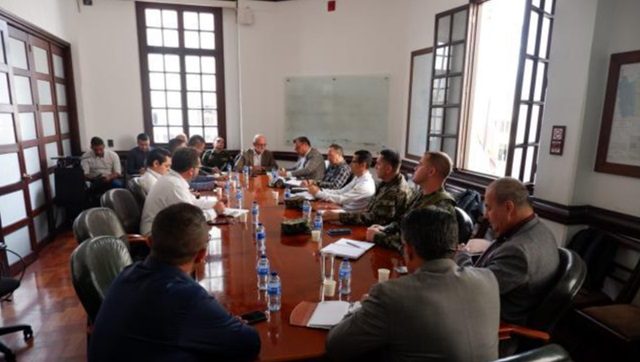BTN News: The recent capture of alias Agustín, a notorious leader of the Ejército Gaitanista de Colombia, has intensified tensions in several Colombian regions. Arrested on Friday, September 6th, in Antioquia, Agustín is suspected of spearheading extortion, illegal mining, and other criminal activities in the municipalities of Sonsón, Argelia, and Nariño. Following his capture, hostilities erupted in the small town of Puerto Venus, underscoring the delicate security situation along the borders of Antioquia and Caldas. As the government ramps up its security measures, questions linger about the influence of armed groups such as the Clan del Golfo and their ongoing negotiations with the national government.
Arrest of Gaitanista Leader Escalates Tensions in Antioquia
Alias Agustín, a 33-year-old suspected leader of the General Morales front of the Ejército Gaitanista de Colombia, was captured while riding a motorcycle. During a routine stop-and-search, police discovered a traumatic pistol, six revolver cartridges, and a cell phone in his possession. Authorities believe his arrest may have triggered a violent attack in the town of Puerto Venus, Nariño, Antioquia, on the same day. Although no casualties were reported, the incident highlights the precarious security conditions in the area.
Hostilities in Puerto Venus: Armed Groups Deny Responsibility
On the night of September 6th, just hours after the arrest, a group of armed individuals attacked the town of Puerto Venus, near the border with Arboleda in Caldas. Despite the assault, there were no reported injuries. In response, the Ejército Gaitanista de Colombia denied any involvement through a public statement, claiming the accusations aimed to undermine their peace negotiations with the national government. The presence of other armed groups, such as the Clan de Oriente and its successor, the Clan del Golfo, in these border regions adds further complexity to the unfolding situation.
Government Reinforces Security in Border Areas
In response to these developments, the Government of Caldas has taken proactive steps to bolster security along its borders. On Monday, September 9th, Governor Henry Gutiérrez and Secretary of Government Jorge Andrés Gómez Escudero convened an extraordinary security council. The council’s purpose was to conduct a geostrategic assessment and devise measures to prevent further instability or criminal activity.
Key Measures Announced:
- Continuous Surveillance: Increased presence of law enforcement and military personnel in border regions.
- Community Awareness Campaigns: Educational programs led by the Gaula of the National Police, teaching residents how to identify and report extortion attempts.
- Enhanced Community Engagement: Efforts to build trust and cooperation between the authorities and local communities to strengthen security efforts.
Police Stand Firm Against Criminal Intimidation
In the face of rising tensions, Colonel Carlos Andrés Martínez Romero, commander of the Antioquia Police, reassured the public of the police force’s unwavering commitment to maintaining order. “We will not be intimidated by criminal actions. The police have all the capacity to respond to this and any greater threats,” he asserted.
Concerns Over Armed Group Activity in the Region
Local authorities and residents have expressed growing concern about the presence of armed groups in the border regions of Antioquia and Caldas. Reports suggest that after the dismantling of the Clan de Oriente, members of the Clan del Golfo moved into the area, raising fears of potential conflicts and further destabilization. The situation is further complicated by the ongoing peace negotiations with the government, as various factions jostle for power and influence.
Increased Focus on Extortion and Illegal Activities
Investigators believe that alias Agustín was heavily involved in extortion, illegal mining, drug trafficking, and contract killings across several municipalities in Antioquia. His capture represents a significant blow to the criminal operations in the region, but it also poses new challenges for law enforcement as other armed groups might attempt to fill the power vacuum.
Future Outlook: Government’s Plan to Maintain Stability
The Government of Caldas remains focused on preventing further criminal activities and maintaining stability in the border areas. Through enhanced surveillance, community engagement, and targeted operations against armed groups, authorities aim to restore peace and security. Meanwhile, the public remains vigilant as the threat of renewed hostilities looms over these volatile regions.
Conclusion:
The arrest of alias Agustín has triggered a complex chain of events in Colombia’s border regions, underscoring the ongoing struggle between government forces and criminal organizations. As the government ramps up security and community engagement, the balance between peace and conflict remains fragile. The situation continues to unfold, and all eyes are on how the authorities will manage the evolving threats in this turbulent landscape.


